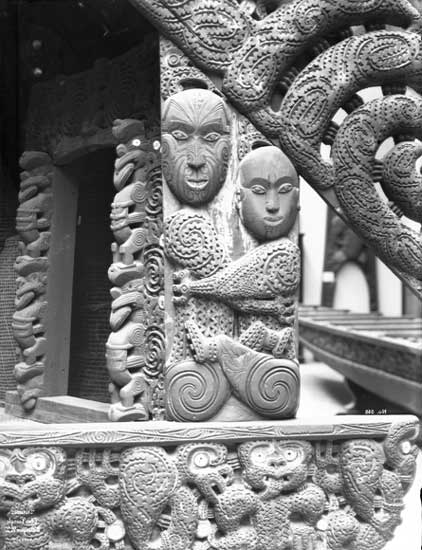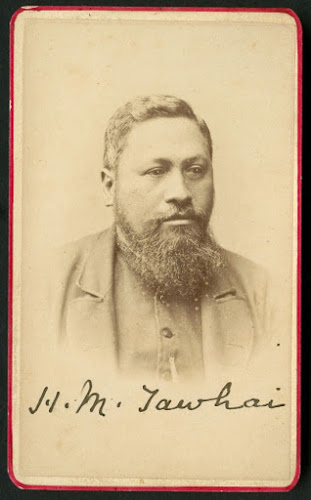Seminar: American Empire: An Alternative History presented by Professor Antony Hopkins
Date:
7 November 2014
Time: 12.10 pm
Venue: Murphy Lecture Theatre 101 (MY101), Victoria University of Wellington
The History Programme is pleased to host Professor Antony Hopkins, who will speak on his forthcoming study American Empire: An Alternative History.
American Empire: An Alternative History seeks to rethink the United States and empire in an international setting, using the UK as the prime comparator. Conventional wisdom suggests that ‘empire’ applies to the United States before 1783 and after 1945.
Professor Hopkins suggests, instead, that the decades between require reconsideration.
While in 1783 the USA achieved formal independence, what followed was a long struggle to secure real sovereignty, during which the US remained heavily dependent on the UK. The conventional narrative of the pioneering nation and its progress towards liberty and democracy can be seen instead as an increasingly fraught search for development and viability. In this understanding, the US is the first major decolonised state and, as such, the forerunner of many others that were to follow. The experiment in nation-building failed in 1861, and the new endeavour after 1865 sought to shape a new union. The effort succeeded: 1898 was an expression and celebration of unity achieved that also won the US recognition as a world power.
Although 1898 delivered an overseas territorial empire, the history of that empire has been almost totally neglected. Reconstructing the history of the 'real' US Empire provides a test of US exceptionalism, enables the US experience to be compared to that of the other territorial empires, and presents unused precedents for present-day commentators to refer to when they advise policy-makers about the 'lessons of history.' This empire ended in the 1950s, when the European empires also came to an end. What followed was not an American 'empire' but an attempt to create US hegemony in greatly changed circumstances. The attempt was of relatively short duration and of limited success.
Professor A. G. Hopkins is a world-renowned economic historian of the British Empire and Africa, as well as a pioneer in the history of globalisation and global history. He is Emeritus Professor at Pembroke College Cambridge, and was previously the Walter Prescott Webb Professor of History and Ideas at the University of Texas in Austin and the Smuts Professor of Commonwealth History at the University of Cambridge. Perhaps the best-known of his works is British Imperialism 1688-2000 (with P.J. Cain). He has also published extensively on globalization and world history.
Venue: Murphy Lecture Theatre 101 (MY101), Victoria University of Wellington
The History Programme is pleased to host Professor Antony Hopkins, who will speak on his forthcoming study American Empire: An Alternative History.
American Empire: An Alternative History seeks to rethink the United States and empire in an international setting, using the UK as the prime comparator. Conventional wisdom suggests that ‘empire’ applies to the United States before 1783 and after 1945.
Professor Hopkins suggests, instead, that the decades between require reconsideration.
While in 1783 the USA achieved formal independence, what followed was a long struggle to secure real sovereignty, during which the US remained heavily dependent on the UK. The conventional narrative of the pioneering nation and its progress towards liberty and democracy can be seen instead as an increasingly fraught search for development and viability. In this understanding, the US is the first major decolonised state and, as such, the forerunner of many others that were to follow. The experiment in nation-building failed in 1861, and the new endeavour after 1865 sought to shape a new union. The effort succeeded: 1898 was an expression and celebration of unity achieved that also won the US recognition as a world power.
Although 1898 delivered an overseas territorial empire, the history of that empire has been almost totally neglected. Reconstructing the history of the 'real' US Empire provides a test of US exceptionalism, enables the US experience to be compared to that of the other territorial empires, and presents unused precedents for present-day commentators to refer to when they advise policy-makers about the 'lessons of history.' This empire ended in the 1950s, when the European empires also came to an end. What followed was not an American 'empire' but an attempt to create US hegemony in greatly changed circumstances. The attempt was of relatively short duration and of limited success.
Professor A. G. Hopkins is a world-renowned economic historian of the British Empire and Africa, as well as a pioneer in the history of globalisation and global history. He is Emeritus Professor at Pembroke College Cambridge, and was previously the Walter Prescott Webb Professor of History and Ideas at the University of Texas in Austin and the Smuts Professor of Commonwealth History at the University of Cambridge. Perhaps the best-known of his works is British Imperialism 1688-2000 (with P.J. Cain). He has also published extensively on globalization and world history.



Comments
Post a Comment